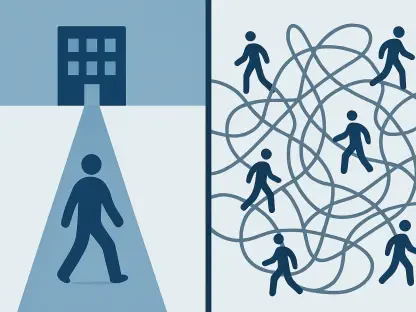In an era where technology permeates every aspect of daily life, a surprising new application of artificial intelligence has emerged, stirring both intrigue and unease among those navigating the delicate terrain of loss. AI tools, such as ChatGPT, are now being employed to craft obituaries, offering a quick solution for grieving families and funeral homes tasked with summarizing a loved one’s legacy. This development raises profound questions about the balance between efficiency and the deeply personal nature of mourning. As society increasingly turns to automation for tasks once reserved for human hands and hearts, the practice of outsourcing such an intimate act to algorithms prompts a closer examination of what is gained—and what might be sacrificed—in the name of convenience. This growing trend not only reflects broader cultural shifts toward technological reliance but also challenges traditional notions of how grief should be expressed and processed in moments of profound sorrow.
The Rise of AI in Mourning Practices
The adoption of AI for writing obituaries has seen a notable uptick, driven by the promise of easing the emotional burden on those in grief. Funeral directors and families alike have embraced these tools as a way to produce polished summaries of a loved one’s life without the struggle of finding the right words during such a painful time. Individuals overwhelmed by loss often find solace in the speed and clarity that AI can provide, delivering a well-structured tribute in mere minutes. This trend is not merely a niche experiment but part of a larger movement where technology steps in to handle tasks deemed too difficult or time-consuming. Reports indicate that many who have used these services appreciate the professional tone and structure, which can feel like a lifeline when personal articulation seems impossible. However, beneath this apparent benefit lies a subtle erosion of the raw, human process of confronting and expressing grief through one’s own voice, a process that has long been seen as integral to healing.
Beyond the immediate appeal of efficiency, the business of AI-driven obituary services is flourishing, with startups emerging to capitalize on this sensitive market. Companies specializing in automated tributes are positioning themselves as essential aids, offering packages that range from basic obituary drafts to comprehensive memorial content. This commercialization reflects a broader societal inclination to streamline even the most sacred experiences, turning personal loss into a transactional process. While these services may alleviate some stress for bereaved individuals, they also risk reducing a deeply meaningful act to a mere checkbox on a to-do list. The polished output of AI, though impressive in its coherence, often lacks the nuanced imperfections that make a handcrafted obituary a true reflection of both the deceased and the writer’s emotional journey. As this industry grows, it becomes evident that the intersection of technology and mourning is not just about convenience but also about reshaping how society values personal engagement with loss.
Emotional Costs of Automated Grief
The convenience offered by AI in crafting obituaries comes with a significant emotional trade-off, as many argue that the act of writing through pain is a vital part of the grieving process. When individuals delegate this task to an algorithm, they may bypass the cathartic struggle of putting complex feelings into words, a struggle that often fosters deeper connection and closure. The generic tone of AI-generated content, while polished, can feel akin to a mass-produced sentiment, lacking the unique voice and personal anecdotes that only a close relation might capture. This detachment raises concerns about whether technology, in its quest to simplify, might inadvertently rob people of a critical opportunity to engage with their emotions fully. The risk is not just in the final product but in the missed experience of processing loss through personal expression, an act that many therapists and counselors view as essential to emotional healing.
Further scrutiny reveals that the casual acceptance of AI for such intimate tasks could signal a troubling shift in cultural attitudes toward grief. Instances where users describe future AI-written tributes with a sense of detachment or even levity suggest a growing normalization of outsourcing emotional labor to machines. This trend points to a broader desensitization, where the gravity of commemorating a life is diminished by the ease of automation. While some may find the results satisfactory, the deeper implication is that society might be prioritizing speed over substance, opting for a quick fix rather than the messy, meaningful work of remembrance. The danger lies in eroding the authenticity that comes from wrestling with sorrow firsthand, potentially leaving individuals less equipped to navigate future losses. As technology continues to infiltrate personal spheres, the challenge becomes discerning where efficiency ends and emotional impoverishment begins, particularly in contexts as profound as mourning.
Cultural Implications and Future Concerns
The encroachment of AI into the realm of grief underscores a societal obsession with convenience, often at the expense of human connection. This trend mirrors a larger pattern where technology is applied to bypass discomfort or effort, even in areas as sacred as death and remembrance. While the allure of a neatly composed obituary without personal toil is undeniable, it prompts reflection on whether such shortcuts are appropriate when dealing with the weight of loss. The cultural shift toward automation in these moments risks redefining grief as a problem to be solved rather than an experience to be lived. As more people turn to digital tools for solace, there is a growing concern that the collective understanding of mourning could become shallower, stripped of the depth that comes from personal involvement. This raises critical questions about the kind of legacy society wishes to leave in how it honors its departed.
Looking ahead, the inevitability of technology’s expansion into all facets of life, including death, seems almost certain, with big tech likely to further exploit these intimate spaces for profit. The proliferation of AI tools in mourning practices is just one example of how personal experiences are being commodified, turning raw human emotion into a marketable service. This trajectory suggests a future where even the most private acts of remembrance might be mediated by algorithms, potentially diluting the essence of what it means to grieve. The challenge for society lies in striking a balance—leveraging technology to support without allowing it to dominate spaces that demand human touch. As this trend evolves, it will be crucial to monitor how these tools shape emotional landscapes and whether they ultimately serve to connect or isolate in times of loss. The broader implication is a call to preserve the authenticity of personal expression amidst an ever-growing reliance on digital solutions.
Reflecting on Technology’s Role in Loss
In looking back at the integration of AI into obituary writing, it becomes clear that while the tools offer undeniable ease, they also spark a profound debate about the essence of grief. The polished outputs often mask the absence of personal struggle, a component many find indispensable to processing loss. The commercialization of such services further complicates the narrative, as startups turn mourning into a business opportunity, often prioritizing profit over emotional depth. This period highlights a societal tension between embracing innovation and safeguarding the human elements of remembrance.
Moving forward, the focus should shift toward creating guidelines that ensure technology supports rather than supplants personal engagement in grief. Encouraging hybrid approaches—where AI serves as a starting point but individuals add their unique voice—could help maintain authenticity. Additionally, fostering awareness about the emotional benefits of personal expression might inspire more people to resist full automation. The path ahead involves a deliberate effort to protect the sanctity of mourning, ensuring that technology remains a tool, not a replacement, for human connection in times of loss.









